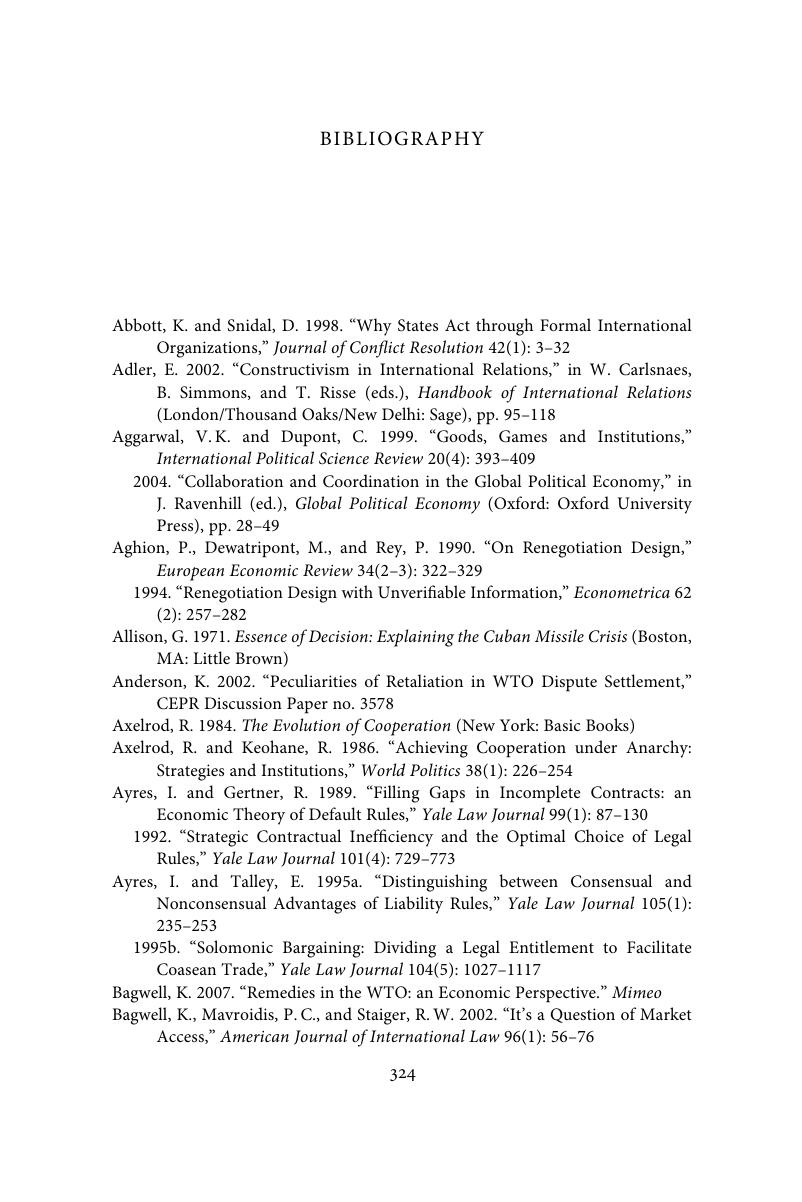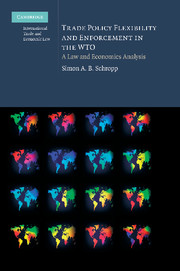Book contents
- Frontmatter
- Contents
- List of figures
- List of abbreviations
- Acknowledgements
- Foreword
- 1 Introduction: trade policy flexibility in the WTO – vice or virtue?
- PART I An introduction to incomplete contracting
- PART II Theorizing about the WTO as an incomplete contract
- PART III Flexibility and enforcement in the WTO: towards an agenda for reform
- Bibliography
- Index
- References
Bibliography
Published online by Cambridge University Press: 05 May 2010
- Frontmatter
- Contents
- List of figures
- List of abbreviations
- Acknowledgements
- Foreword
- 1 Introduction: trade policy flexibility in the WTO – vice or virtue?
- PART I An introduction to incomplete contracting
- PART II Theorizing about the WTO as an incomplete contract
- PART III Flexibility and enforcement in the WTO: towards an agenda for reform
- Bibliography
- Index
- References
Summary

- Type
- Chapter
- Information
- Trade Policy Flexibility and Enforcement in the WTOA Law and Economics Analysis, pp. 324 - 346Publisher: Cambridge University PressPrint publication year: 2009



